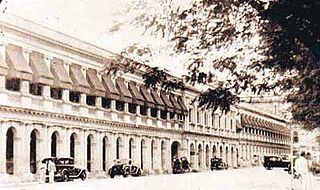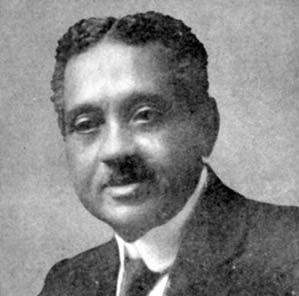 |
|---|
| Constitution |
General elections were held in Gold Coast in 1944.
 |
|---|
| Constitution |
General elections were held in Gold Coast in 1944.
The Legislative Council had 30 members, of which 16 were 'official' members (civil servants) and 14 'unofficial' members. [1] [2] Of the 14 unofficial members, three were Europeans appointed by the Governor to represent banking, mercantile and shipping interests, and two were Europeans elected by the Chamber of Commerce and Chamber of Mines. The remaining nine unofficial members were Africans, six of which were elected by the Provincial Councils (three by the Eastern Province Council, two by the Central Province Council and one by the Western Province Council) and three directly-elected members representing the municipalities of Accra, Cape Coast and Sekondi. [1]
In Cape Coast, the contest between Tufuhin Moore and Kofi Bentsi-Enchill saw both candidates using their supporters to bring voters to polling stations and trying to block their opponents voters from voting. [3]
In Cape Coast, Moore defeated Bentsi-Enchill by 298 votes to 232. [3] Akilagpa Sawyerr was elected in Accra and C. W. Tachie-Menson in Sekondi. [4]

The Gold Coast was a British Crown colony on the Gulf of Guinea in West Africa from 1821 until its independence in 1957 as Ghana. The term Gold Coast is also often used to describe all of the four separate jurisdictions that were under the administration of the Governor of the Gold Coast. These were the Gold Coast itself, Ashanti, the Northern Territories protectorate and the British Togoland trust territory.

The Parliament of the Republic of South Africa is South Africa's legislature. It is located in Cape Town, the country's legislative capital.

Elections in Guinea-Bissau take place within the framework of a multi-party democracy and a semi-presidential system. Both the President and the National People's Assembly are directly elected by voters.

The Legislative Council of Ceylon was the legislative body of Ceylon established in 1833, along with the Executive Council of Ceylon, on the recommendations of the Colebrooke-Cameron Commission. It was the first form of representative government in the island. The 1931 Donoughmore Constitution replaced the Legislative Council with the State Council of Ceylon.
The fourth election to the Legislative Council of Ceylon was held in 1924.
The third election to the Legislative Council of Ceylon was held on 21 April 1921.

Benjamin William Quarteyquaye Quartey-Papafio, was a physician pioneer and politician on the Gold Coast - the first Ghanaian to obtain the medical degree (M.D) and the first to practise as an orthodox-trained physician.

General elections were held in the Gold Coast in June 1946. Constitutional amendments on 29 March 1946 enabled the colony to be the first in Africa to have a majority of black members in its legislature; of the Legislative Council's 32 members, 21 were black, including all 18 elected members. The first meeting of the Legislative Council was on 23 July 1946.

A plebiscite on whether the Sanitary Board should have an official or unofficial majority was held in Hong Kong in June 1896. It was the only plebiscite conducted by the Hong Kong Government on record. The other de facto referendum launched by the pro-democracy camp through the by-election in 2010 was not officially recognised.

Henry van Hien was a Gold Coast merchant, politician, and nationalist leader.

General elections were held in Gold Coast in August 1927, the first direct elections in the territory.

General elections were held in Nigeria for the first time on 20 September 1923. The Nigerian National Democratic Party (NNDP) won three of the four elected seats in the Legislative Council.

General elections were held in Nigeria on 28 September 1928. The Nigerian National Democratic Party (NNDP) won three of the four elected seats in the Legislative Council.

General elections were held in Nigeria in 1933. The Nigerian National Democratic Party (NNDP) won three of the four elected seats in the Legislative Council.

General elections were held in Nigeria on 21 October 1938. The Nigerian Youth Movement (NYM) won three of the four elected seats in the Legislative Council, defeating the Nigerian National Democratic Party (NNDP), which had won every election since 1923.

Partial general elections were held in Nigeria in 1943, with only two of the four elected seats available.

General elections were held in Gold Coast in 1931.

General elections were held in Gold Coast in 1935.
Kwamena Bentsi-Enchill (1919-1974) was a Ghanaian judge and academic. He was a justice of the Supreme Court of Ghana from 1971 to 1972. He was also a professor of law at the University of Zambia and the University of Ghana. He was a fellow of the Ghana Academy of Arts and Sciences.